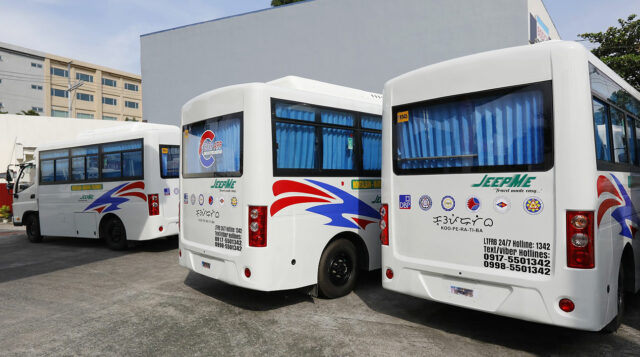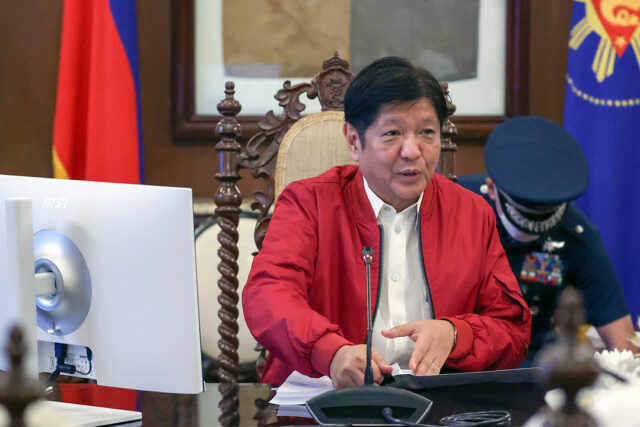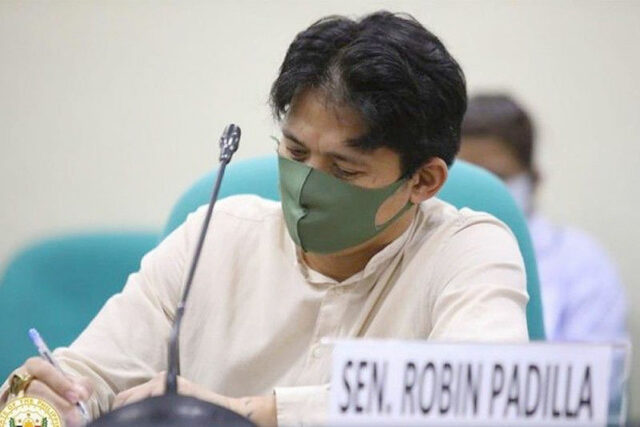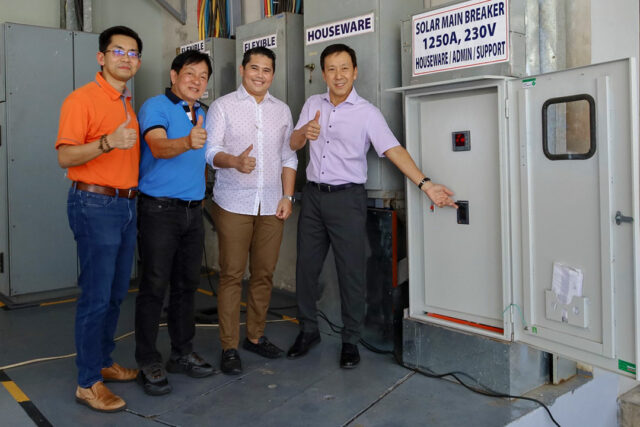By Kyle Aristophere T. Atienza, Reporter
PHILIPPINE President Ferdinand “Bongbong” Marcos, Jr. will meet with US Secretary of State Antony Blinken next week to tackle security concerns, the presidential palace said on Thursday, amid increasing tensions with China.
“I will be meeting with Secretary Blinken on Tuesday,” the president told a news briefing in Berlin where he was on a state visit. “What is confirmed so far is the meeting with him.”
Mr. Blinken’s visit comes after Mr. Marcos visited Europe this week including Germany, where he cited China’s increasing assertiveness in the South China Sea.
Philippine Foreign Affairs Secretary Jose Enrique A. Manalo said his office had not received a confirmation from Japanese Foreign Minister Yoko Kamikawa if he would also come to Manila for a three-way ministerial meeting.
“As for Japan, it’s not confirmed if they will be coming or not, but at this stage we haven’t received any confirmation,” he said at the same briefing.
“We hope the intention is to continue to plan, to strengthen the cooperation between the three countries — the United States, Japan and the Philippines,” Mr. Marcos said.
“And we will perhaps formalize it. It is probably just formalizing what we are already doing, to put a bit more structure as to operability,” he added.
The possible three-way meeting comes on the heels of increasing tensions in the South China Sea, which China claims almost in its entirety.
Chinese President Xi Jinping last week called on his country’s armed forces to coordinate preparations for military conflicts at sea and help in the development of China’s maritime economy.
The Philippines should do what it can to defend its sovereignty, Mr. Marcos said, citing “a more active attempt by the Chinese to annex some of our territory.”
Mr. Marcos told Australia’s Parliament last month he would not allow any foreign power to take “one square inch” of the country’s territory. “I will not allow any attempt by any foreign power to take even one square inch of our sovereign territory,” he said in a speech during his visit.
Australia and the Philippines started their first joint sea and air patrols in the South China Sea in November, aimed at countering an increasingly assertive China.
The South China Sea is a conduit for more than $3 trillion (P166 trillion) worth of ship-borne commerce each year and is a major source of tension between the Philippines and China.
The Philippines accuses China of committing aggressive acts inside its exclusive economic zone (EEZ). A United Nations-backed arbitration court based in the Hague in 2016 voided China’s sea claims — a decision Beijing has rejected.
‘HISTORY’
Mr. Marcos’ meeting with Mr. Blinken and the possible three-way meeting among Manila, Washington and Tokyo could mean “expanded foreign military intervention and basing,” said Raymond Palatino, secretary-general of Bagong Alyansang Makabayan (Bayan), which has opposed US military presence in the Philippines.
“We never learn from history,” he said in a Facebook Messenger chat. “Those who posed as friends end up becoming ruthless invaders and colonizers.”
Bayan accused Mr. Marcos of advancing Washington’s geopolitical interest in the region “by shamelessly offering our country as an extension of the US military network.”
The Philippine leader has veered away from his predecessor’s pivot to China, boosting Philippine security ties with the US and other Indo-Pacific powers such as Japan and Australia.
In February, the Philippines gave the US access to four military bases on top of the five existing sites under their 2014 Enhanced Defense Cooperation Agreement.
Last week, the governor of the northernmost province of Batanes said a plan was under way for the construction of a US-funded civilian port.
Batanes is just more than 200 kilometers from Taiwan, which China claims as its own.
The US Indo-Pacific Command and Philippine military completed the third iteration of their maritime cooperative Activity, which started in November.
The Philippines and Japan last month agreed to finalize talks on a possible reciprocal access agreement similar to the Philippines’ visiting forces agreement with the US.
Mr. Marcos arrived in the Czech Republic on Mar. 13, a move that is seen as part of a broader effort to diversify the Philippine economy away from China, its largest trade partner.
Tensions between the Philippines and China have worsened in the past year as Chinese coast guard and militia ships continue to block resupply missions to a World War II-era ship that Manila grounded in 1999 at Second Thomas Shoal to assert its sovereignty.
Mr. Marcos before leaving for Germany this week said the Philippines should step up economic ties with “like-minded nations.”
There’s no one else to blame for Manila’s stronger partnership with the US and Japan but China, Chester B. Cabalza, founder of Manila-based International Development and Security Cooperation, said via Messenger chat. “Beijing’s belligerence and unstoppable gray zone tactics pushed President Marcos to the limit.”
A Chinese envoy said earlier this year the two countries’ relations were at a crossroads. The Philippine Foreign Affairs department last week said it had filed nine diplomatic protests against Beijing this year, bringing the total since Mr. Marcos assumed office in July 2022 to 142.
The Philippine military on Tuesday said it had spotted about 50 Chinese vessels within the country’s exclusive economic zone (EEZ) in the South China Sea, many of them near the disputed Scarborough Shoal.
At least four Philippine Navy officers were injured earlier this month after China’s coast guard fired water cannons at one of two wooden civilian boats used in a resupply mission at Second Thomas Shoal, according to the Philippine National Security Council.
The water cannons from two Chinese Coast Guard vessels shattered the windshield of Unaizah Mae 4, causing minor injuries to the officers, it said.
It also accused a Chinese coast guard vessel of executing “dangerous maneuvers” against the escort ship, leading to a minor collision that resulted in “superficial structural damage” to the hull of the Philippine Coast Guard vessel.
The US and Japan have condemned the incident.










